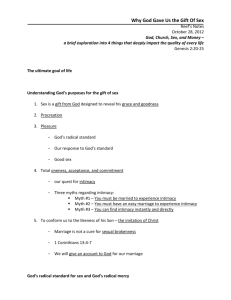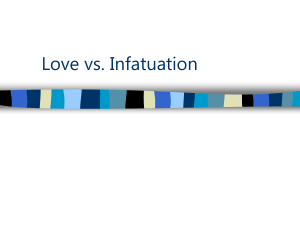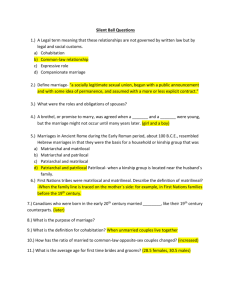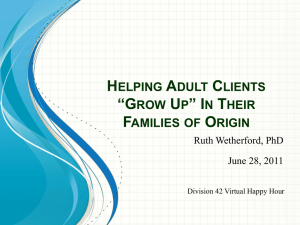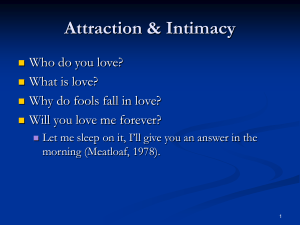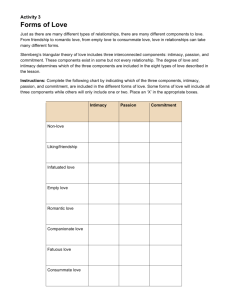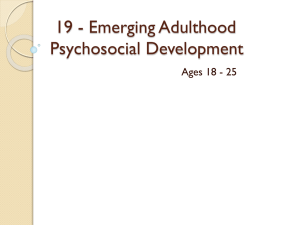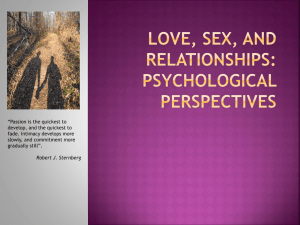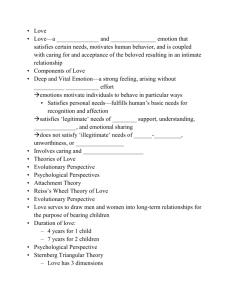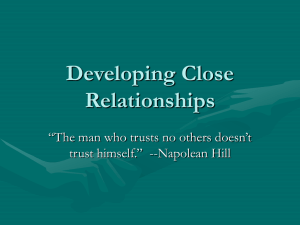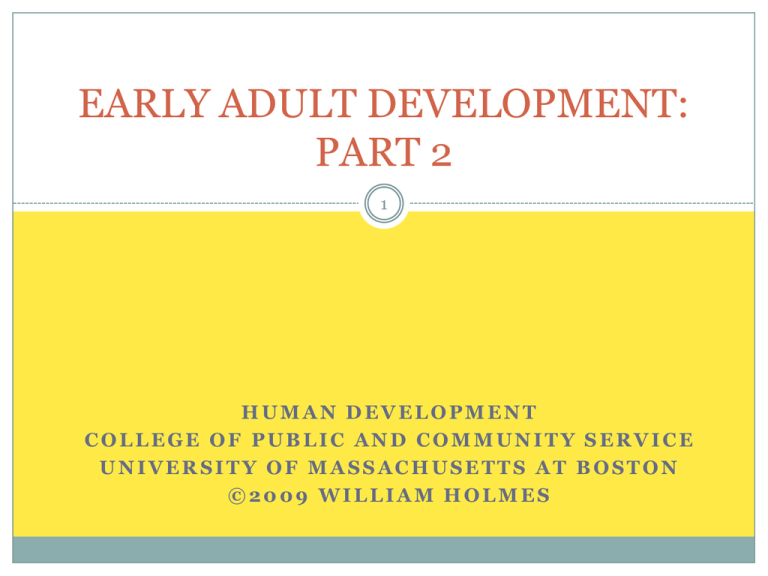
EARLY ADULT DEVELOPMENT:
PART 2
1
HUMAN DEVELOPMENT
COLLEGE OF PUBLIC AND COMMUNITY SERVICE
UNIVERSITY OF MASSACHUSETTS AT BOSTON
©2009 WILLIAM HOLMES
CHANGES IN MARITAL BEHAVIOR: 1
2
Marriage at older age—27, men; 25
women (2003)
Unmarried increasing—86%, 20-24
year olds
Cohabiting increasing—numbers
and percent
Cohabiting more tied to marriage
Marriage more civil, less religious
CHANGES IN MARITAL BEHAVIOR: 2
3
More mixed marriages, except for
class
Increase in homosexual marriage
More divorce
More remarriage
Fewer children, more only children
Later age at first birth
EARLY ADULT PERSONAL DEVELOPMENT: 1
4
Levinson Life Course Theory
Sequence of eras
Life structure building and changing
Novice phase of early adulthood
1.
Obtaining a dream
2.
Finding a mentor
3.
Finding a vocation/occupation
4.
Establishing a love relationship
EARLY ADULT PERSONEL DEVELOPMENT: 2
5
Erikson’s sixth stage of
development—intimacy and
solidarity versus isolation
1. Mutuality of intimacy
2. Sharing with a loved partner
3. Sharing with other sex
4. Sharing mutual trust
5. Able to regulate work, procreation,
recreation
EARLY ADULT GENDER ROLES
6
Solidification of gender identity
Gender-role orientation—confidence in
identity
Gender-role preference—discomfort in
identity
Gender-role adaptation—behavioral
conformity
Genes, adaptation, and biology factors
Social, religious, and political factors
ADULT GENDER DIFFERENCES
7
Fight or flight versus bend-and
bond
Machismo versus feminism
Abstinence versus hooking-up
Attractiveness versus occupation,
values, and children
Work, childrearing, romance, and
sexuality
DEVELOPING ADULT LOVE
8
Sternberg—passion, intimacy, commitment
Liking—intimacy
Infatuation—passion
Empty—commitment
Romantic—intimacy and passion
Fatuous—commitment and passion
Companionate—commitment and intimacy
Consummate—commitment, intimacy, and
passionate
DEVELOPING ADULT RELATIONSHIPS
9
Attending to the
relationship in the present
Acceptance of ourselves
and others as we are
Appreciation of ourselves
and others
Affection with others
Allowing things of be,
without controlling others
Richo, 2002.

